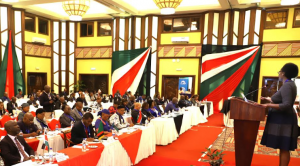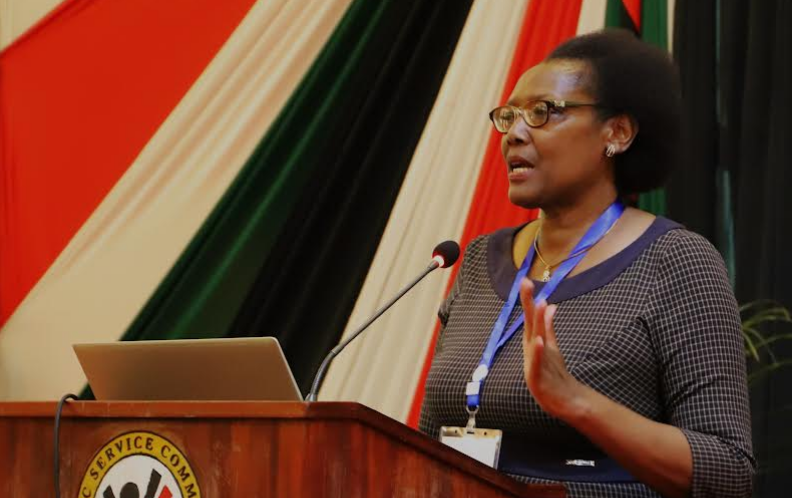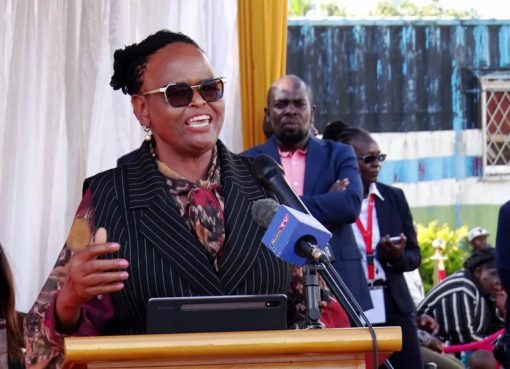The government has put in place policies and regulations to enable Kenyans to access the internet and utilise online services comfortably.
A Director of Information at the State Department for Broadcasting and Telecommunications, Ms. Esther Wanjau, said the e-services provided by the government have enabled public services to be carried out with ease.
She singled out the layout of the undersea submarine cable (the East Africa Marine Systems) to open Kenya to the rest of the world, noting that for the government to fully utilise the cable, it laid a terrestrial fibre optic known as the National Optic Fibre Broadband Infrastructure (NOFBI) in the country from the county and sub-county level to serve the underserved and unserved.

Other digital initiatives that have been put in place by the government include the Integrated Financial Management Information System to handle financial issues and the integrated payroll and personnel database used by Human Resources for managing civil servants’ payroll, among others, a government achievement that has promoted e-services in the country.
“The government has also established an e-citizen portal, which is a one-stop shop that offers government services online,” said Wanjau.
She was speaking on Thursday during the 6th General Assembly and Conference for the Association of African Public Service Commissions (AAPSCOMS) held at the Safari Park hotel in Nairobi.
The three-day conference, which started on Wednesday, has brought together 10 countries, namely Eswatini, Ghana, Lesotho, Namibia, Nigeria, South Africa, Tanzania, the Gambia, Zambia, and Kenya, and representatives from Cameroon, Uganda, and Egypt, who have come together to collaborate and deliberate on ways of supporting PSCs to develop and implement strategies that can improve service delivery in public service.
Ms. Wanjau, who was one of the panellists, said in her presentation on Leveraging ICT for Effective and Efficient Service Delivery that the Kenyan government has leveraged ICT through internet connectivity, digitalisation of government services, putting in place a proper regulatory framework and development of ICT human resource capacity, enhancing productivity and entrepreneurship, as well as promoting job opportunities for the youth and boosting the country’s economy.
“The government has also put in place stringent measures to curb cyber security for the citizens to feel secure to use it and to mitigate the cyber threats,” she added.
The panellists were giving their input in a paper on the topic presented by Dr. Austeria Letholets Ntsike, a Lesotho PSC delegate, on how the Lesotho government intends to leverage ICT in their service delivery.
Dr. Ntsike said she is impressed by how Kenya is using community participation to empower women with digital skills to improve productivity, noting that they will have a conversation with Kenya with a view to replicate the same in Lesotho.
In his presentation, Luxolo Rubushe, Managing Director of Adapt IT from South Africa, said the laying of digital infrastructure has generated economic opportunities in the rural areas and among the Gen zees who use smart phones and urged public institutions to use the knowledge they have to uplift the capacity of their internal staff.
Panellist Prof. Jimmy Macharia of United States International University Africa (USIU) in charge of Technology and Training, while giving his presentation, recommended that governments should have units where they can standardise issues on procurement of technology systems during the signing of contracts with suppliers.
He gave an example of Kenya, where the government has digitised the Integrated Financial Management Information System, a payment system where all government departments are required to procure on the online portal, which he encouraged other countries to emulate for efficiency.
Prof. Macharia said leveraging on ICT for efficient and effective service delivery helps to save cost and time, as well as increases productivity and innovation, adding that public servants need to be trained in Artificial Intelligence and other technologies for them to be well versed in using modern technology.
“How public service transforms to accommodate these changes will make it easier for government agencies and departments to collaborate to execute key processes,” he stated.
Prof. Macharia at the same time stressed the need for promoting equity and digital economy in the rural areas through community networks, a move he noted will help to empower women who are the majority of the population.
He added that studies have shown that women smallholder farmers account for 67 per cent, and the use of community networks participation will help to provide and spread internet signals and maintenance of the internet signals.
Macharia said for efficient service delivery among public servants, the Public Service Commissions should assist countries to efficiently execute policies and strategies for the benefit of citizens.
He also mentioned that recruitment of the right people is key and effective in the management of performance and collection of revenue in a workplace.
By Bernadette Khaduli





